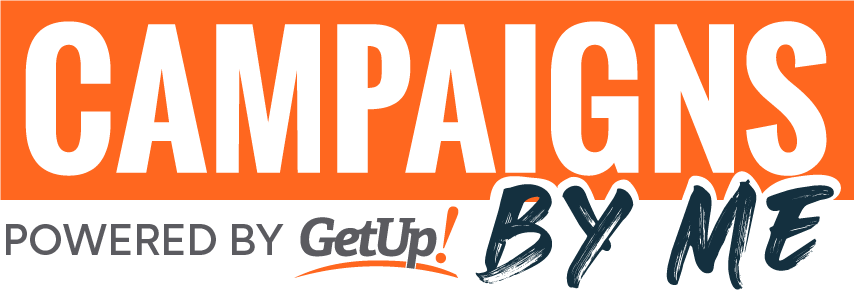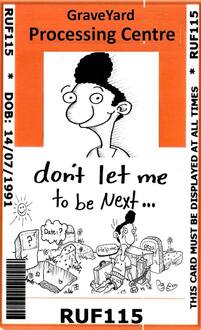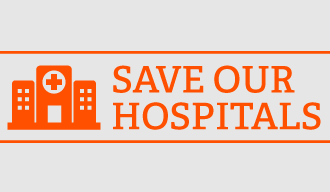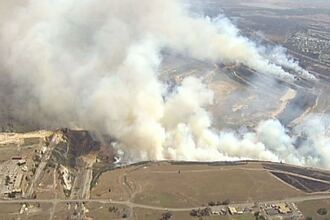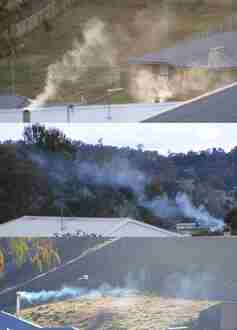-
Ban the BottleThe UN announced we have a planetary crisis due to plastics. Single use plastics including bottles, are wasteful, polluting and lethal to marine life. Oil and energy are used in the manufacture of plastic drink bottles. Recycling them takes more energy. Now that China has stopped taking our waste in 2018, waste management contractors have reported that the bottles are piling up by the millions per day and are a fire hazard. There have already been serious fires in Victoria of large piles of plastic bottles and legal action by people in surrounding areas resulting in financial loss and health risks. Neither do we have the space in landfill to bury them and that's also not a sustainable solution. We MUST stop the problem at its source. People can bring reusable drink bottles to fill at refilling stations. To keep up to date with some in the world who are banning plastic bottled water see https://www.banthebottle.net/map-of-campaigns/111 of 200 SignaturesCreated by Monica Winston
-
Return Community & Residents Rights - Stop Supercar Racing BlightsV8 car racing outside residential homes is unsafe and unacceptable. The Supercar "Noise Management Plan" recommends residents living on the racetrack "Keep doors and windows closed; seal cracks, doors and window frames using commercial or make shift products. Basic protection measures may include: adhesive sealing strips for door frames and windows , temporary vent seals, under door strip seals/draught stoppers, fill cracks using commercial foam fillers or silicon; remain in back rooms; use hearing protection; leave property during some or all of the race period". Many residents living on the racetrack have no air-conditioning, and cannot afford to go away for the race period. They are faced with living in the above conditions for 3 x 10 hour days. Please note there are at least 3 ladies in the area that are pregnant, one of whom is expecting her baby to born the event weekend. The Heritage Conservation Areas of Newcastle and Newcastle East is wholly unsuitable for V8 Super Car street racing. The race preparations have seriously degraded residential amenity, homes are being damaged and convict hewn sandstone blocks are being sawn up for the benefit of the layout of the Supercars race track. Businesses are suffering some have closed and one successful business has already lost $70000 in takings. To add insult to injury hospitality is being outsourced to Brisbane or Sydney Supercars suppliers. The race will impact negatively on historic houses, buildings, public parks and the inhabitants on, and within, the racetrack. It will impede access to three aged care complexes located within the proposed racing area. There are over 4000 people residing in this predominantly residential area. NCC are unable to guarantee that sound levels are safe for all residents and that there will be no delay in response times to emergency and medical service. Preparations have resulted in reduced public safety and access to major tourist sites including Newcastle Foreshore Park, Horseshoe Beach, The Convict Lumber Yard, The Cowrie Hole, The Soldiers Baths, Nobbys Breakwall, Bathers Way, Newcastle Baths, Fort Scratchley, the Canoe Pool, and Nobbys and Newcastle Beaches. This will also be the case during the event. This race affects every user of the iconic East End in the lead up to and at the beginning of the peak holiday season. Our beautiful peninsula will be scaffolded and barricaded for three months each year and visitors will be discouraged from coming. The vast majority of people would detest having a 3 day car racing event on their street, or in their suburb. Please consider what residents and the wider community have been living through in preparation for, and during, 3 x 10 hour days of this car racing event. Residents are being asked to provide their private details, to a consortium, in order to be "accredited" to enter their own homes. Many residents will also be forced to walk through a concrete and wire structure, less than 1 metre from V8's racing, for over 200 metres just to get to a pedestrian bridge to get out of their home and away from this event. For residents with disabilities or mobility difficulties there is only one entry and exit, with only one lift to help over a thousand people. Supercars refuse to reveal the Sound Report and to add more insult to injury Destination NSW have given no conditions for which Supercars should comply to. We are trapped by this appallling legislation and we will be soon be trapped by an enclosure, and racing cars, circling our homes and suburb. ANALYSIS OF THE MOTOR RACING (SYDNEY AND NEWCASTLE) ACT 2008 (NSW) This is an Act that: 1. suspends the operation of other Acts protecting safety and the environment before, during and after the proposed event; 2. permits the event to be conducted on public land eventhough it would not be otherwise permitted under those other Acts; 3. permits the event to be operated by a private entity without charge and with the aim of making a profit for the private entity; 4. requires oversight of the event by a government agency, but with no right for any other person to legally challenge the competency or quality of that oversight; 5. severely restricts the actions of any other person in and around the public land where the event is being conducted; 6. prevents any other person suffering financial loss as a result of the event from claiming compensation from the private entity or the government agencies permitting the event; and 7. removes oversight of reinstatement of the public space after the event from the local Council and hands it to Destinations NSW, a government department that only has accountability for tourism. If you're interested in knowing more about the comparison of this track location in relation to other s'cars tracks in Australia head to this website https://rightracewrongplace.org/2017/07/07/compare-the-newcastle-circuit/ This video shows some of the destruction caused in preparation for this intrusive and dangerous event. https://www.youtube.com/watch?v=VPc_JXgiQB8&feature=youtu.be2,457 of 3,000 SignaturesCreated by Newcastle Residents

-
Stop the Debit Card trials . Stop the Privatisation of Social Security Payments to IndueThe Cashless Welfare Debit Card takes away a person's right to choose where they shop, how they pay their bills and does affect where they live. Indue control how payments are made instead of you, your banking and bill paying abilities are affected when you are forced to change to either Centrepay or Indue to make your regular payments. You have to ask permission and provide proof of your bills to Indue Some payments are not accepted on the Indue Card or Centrepay ( Some Car Loans, parents have been forced to hand cars back after defaulting due to Indue unable to allow funds for payments) and you are expected to manage those accounts on your 20% allowance to be paid into your nominated bank. Rents are a problem, especially 3rd party rents, periodic leases, and private rentals, as we have seen many people being left behind in rent, late fees, new charges to change to other methods of paying and some made homeless due to Indue not allowing enough cash to pay their rent. Breach notices and debts, snowballing as other bills fall behind trying to catch up. 80% is restricted to the Indue Visa debit/credit card. Leaving people having to "beg" for approvals to normal things they used to be able to do. Online shopping is restricted, no Ebay. Gumtree, Paypal, Woolworths Online or access to enough cash to be able to purchase secondhand items from Facebook sites, friends, markets etc.Family debt is also a problem to be able to repay loans from families. Most people on some sort of payment for example, a student rely on being able to buy secondhand text books, pay cash room rentals etc, bus trips, with the indue Welfare Debit card there is not enough accessible cash allowed to do such things. Most people on newstart, share accommodations, rent rooms, share houses and utilities and pay cash for those expenses, they also rely on cash for transport on regional buses, secondhand clothing etc. Many people on the card are also working , parents working or partnered with working partners too, we have seen many workers put on this card because they don't have 38 hrs a week full time We have seen across all sites, but most recently the Hinkler site is seeing people struggling as we saw with the first 3 sites, mental health decline, anxiety, stress, depression, sense of worthlessness as people are stigmatised when using the card, public comments when people are seen using the card like " oh that's one of those cards for druggies and alcoholics etc, oh that's that druggy card" etc. When the majority of people forced onto this card have no such problems. How does someone pay their mortgage on Indue??? Mixed info , we know of a farming family who had to change mortgages only to find setting up their mortgage with a new bank they still couldn't pay their mortgage, have now had to work a work around to keep their home,trusted to pay their employees, yet put on the card because they receive part family payments! Some people access cheaper items on Ebay or other online services, like home shopping, many DSP are not able to get out all the time to buy things on a card, at an approved place, We all know there are people in our communities , working and non working that have issues with drugs, alcohol, gambling. This card targets not only those on social security with such addictions, but blankets the majority that do not have any issues, addiction nor financially other than struggling on below poverty line payments and does not address the problems over all in society with the same issues for working people, who can continue to drink, drug and gamble their income away, thus affecting their families too. We would like to see the card scaled back to people on a voluntary basis, with proper supports put in place to help people, Costings should the gov't expand to taking over the Basics Card recipients across the NT and other regions will add up to $233 Million up to 2021 if the Morrison Gov't continue to roll this now program out/ That kind of money could provide good services for those that need it in the community, Housing, Rehabs Councelling *Emergency housing rental crisis funds have been cut as of 1st of Jan 2019 in the Hinkler region, leaving people struggling when Indue does not pay their rents with no where to go for help from losing their rentals! Australians are all supposed to be covered under law equally, The Cashless Debit card see aussies forced onto the card stripped of rights and protections under the social security acts that have been suspended to allow Indue to take over their payments, Privacy, Dignity, Autonomy, Self Determination and Human rights breaches leave card recipients as lesser citizens no longer protected under the law, and stigmatised to be made out to be somewhat lesser for receiving social security payments, combined with the punitive Robodebts, Work For the Dole, Path Traineeships, Parents Next and Job Agencies now more interested in punishments and compliance than helping people get jobs, or receive supports with dignity, The lie if it works just like a normal debit card needs to be called out, along with the media and certain ministers pushing that the card is aimed at Drug, Alcohol and Gambling and Intergenerational Welfare, when none of it is true, It's about control of people and profits for Indue, nothing more,6,352 of 7,000 SignaturesCreated by Kathryn Wilkes
-
NO SHORT-TERM LETS NEXT TO OUR HOMES - WE WANT NEIGHBOURS NOT STRANGERSNSW LAND & ENVIRONMENT COURT JUDGEMENTS: "Mixed-Use is FUNDAMENTALLY INCOMPATIBLE." BUILDING STANDARDS, NSW FIRE & RESCUE plus DISABILITY DISCRIMINATION CRITERIA AND LEGISLATION ARE BEING IGNORED. ONE SET OF RULES FOR NSW TENANTS AND OWNER/OCCUPIERS, NO RULES FOR THOSE USING HOMES FOR HOLIDAYS. There is an AFFORDABLE HOUSING and HOMELESSNESS CRISIS STATE-WIDE. THE RIGHTS OF ACCREDITED ACCOMMODATION PROVIDERS ARE BEING IGNORED. SHORT-TERM LETTING STRIPS HUNDREDS OF MILLIONS OF DOLLARS FROM THE VALUE OF OUR HOUSING. HOMES NOT HOTELS...COMMUNITIY BEFORE PROFITS...NEIGHBOURS NOT STRANGERS www.neighboursnotstrangers.com1,194 of 2,000 SignaturesCreated by Neighbours Not Strangers

-
Save Eaten Fish (Ali) - bring him to Australia for urgent treatmentAli (aka Eaten Fish) is a 24 year old Iranian artist who is interred in Australia's detention centre on Manus Island. Ali suffers from severe OCD, Complex PTSD and debilitating panic attacks - sometimes he scrubs himself til he bleeds. Ali was sexually assaulted earlier in 2016 and continues to be sexually harassed and violently sexually propositioned. As a result of ongoing harassment and the sexual assault Ali's condition has severely deteriorated. The treatment that Ali has received has not helped and is not in line with currently accepted treatment in Australia. Ali is at grave risk of further harm and must be brought to a safe place in Australia where he can receive the specialised treatment he requires.7,253 of 8,000 SignaturesCreated by Janet Galbraith
-
Save Our Wyong HospitalAccording to projections by GetUp, Wyong Hospital could lose up to $281 million in federal funding over the next decade. This is roughly the equivalent of 169 hospital beds, or 313 nurses, or 176 doctors.* These cuts are the outcome of changes to Federal-State funding arrangements made in the 2014 budget, which saw $57 billion ripped from local hospitals over the next decade. The Turnbull Government's recent budget restored just $2.9 billion, locking in $54 billion of these cuts. Meanwhile the Coalition is trying to argue that they have increased health funding. These enormous funding cuts come at a time when the Australian Medical Association and Australian Nursing & Midwifery Federation are warning of an imminent crisis unless hospital funding is increased. They could mean fewer doctors, nurses, or beds, and longer emergency room and elective surgery wait times. But there's hope. In this critical pre-election period, polling shows that protecting our universal healthcare system is the number one vote-changing issue for Australians. The Coalition's attack on public health is clearly ringing alarm bells for voters, and we have a plan to turn the volume up. In the lead up to this year's Federal Election, people will step up in their local communities to call on their Federal MPs and local candidates to commit to adequately-funded hospitals. Together, we will lay the foundations for a strong and secure future where all Australians can receive the quality healthcare they need. *The funding loss projections per hospital are based on figures provided by the Parliamentary Budget Office (PBO) and hospital bed figures (2013) provided by the Australian Institute of Health and Welfare (AIHW). The projections are based on the full $57 billion cuts figure and represent our best estimate given the available data. For more information see: http://www.getup.org.au/hospital-funding1,155 of 2,000 SignaturesCreated by Paul Mailath

-
Save Our Westmead HospitalAccording to projections by GetUp, Westmead Hospital could lose up to $690.6 million in federal funding over the next decade. This is roughly the equivalent of 414 hospital beds, or 770 nurses, or 433 doctors.* These cuts are the outcome of changes to Federal-State funding arrangements made in the 2014 budget, which saw $57 billion ripped from local hospitals over the next decade. The Turnbull Government's recent budget restored just $2.9 billion, locking in $54 billion of these cuts. Meanwhile the Coalition is trying to argue that they have increased health funding. These enormous funding cuts come at a time when the Australian Medical Association and Australian Nursing & Midwifery Federation are warning of an imminent crisis unless hospital funding is increased. They could mean fewer doctors, nurses, or beds, and longer emergency room and elective surgery wait times. But there's hope. In this critical pre-election period, polling shows that protecting our universal healthcare system is the number one vote-changing issue for Australians. The Coalition's attack on public health is clearly ringing alarm bells for voters, and we have a plan to turn the volume up. In the lead up to this year's Federal Election, people will step up in their local communities to call on their Federal MPs and local candidates to commit to adequately-funded hospitals. Together, we will lay the foundations for a strong and secure future where all Australians can receive the quality healthcare they need. *The funding loss projections per hospital are based on figures provided by the Parliamentary Budget Office (PBO) and hospital bed figures (2013) provided by the Australian Institute of Health and Welfare (AIHW). The projections are based on the full $57 billion cuts figure and represent our best estimate given the available data. For more information see: http://www.getup.org.au/hospital-funding285 of 300 SignaturesCreated by Akanksha Bhatia
-
Environment ministers: adopt the strictest air pollution controls possibleAir pollution is a silent and invisible killer, directly responsible for the premature deaths of 3000 Australians each year, and afflicting thousands more. Even at levels that are undetectable by smell, noxious gases and particles in the air can impact your health. Air pollution is a direct cause of many common life-threatening illnesses including asthma, chronic obstructive pulmonary disease, pulmonary cancer, leukaemia, birth defects and immune system defects, cardiovascular problems, heart disease and stroke, liver and other types of cancer. Currently, communities like mine in Morwell, state governments, and the public health care system are unfairly left to bear the burden of air pollution-related illnesses and environmental problems. Polluters like GDF Suez Energy, the owners of the Hazelwood mine, have shown that they won't clean up their act on their own - we need a strong legal framework in order to enforce our rights to a clean environment free of pollution. Please sign the petition and lend your voice to all individuals and communities who are impacted by air pollution.12,132 of 15,000 SignaturesCreated by Kiery-Anne Clissold - Voices of the Valley
-
Bunnings Warehouse, please ban cancer causing glyphosate weed killersFor the health of your customers, and I guess it must be important to Bunnings Warehouse, the ban of glyphosate based weedlkillers has to be a wise move. Some have criticized this consensus report from the WHO but truly must not know the meaning of "slow poisoning" or "precaution". So far I can mention that it has been banned from all french gardening centers, Switzerland centers Coop and Migros, German giant retailer Rewe, also the countries of Columbia, Netherlands, Sri Lanka, Costa Rica and more. There also are about 30 000 health professionals in Argentina (one of biggest user of Roundup) calling for the same ban. moreover a team of international scientists based in New Zealand reported that widely available commercial formulations of RoundUp, 2,4-D and dicamba can lead to the development of antibiotic resistance in common disease-causing bacteria. I suppose that this does not come as a surprise and hope that Bunnings Warehouse will also use the precautionary principle and remove all products containing glyphosate from its shelves. You hopefully also know that the use of these weedkillers depletes the soil and washes down in our rivers, causing more environmental damage and also comes back into our drinkable water (an American study also found that 93% of women tested positive to glyphosate in their breast-milk). I include here a list of links to broaden anyone's knowledge on the matter: http://templatelab.com/iarc-monographs-112-02/ http://www.theguardian.com/sustainable-business/2015/aug/07/supermarkets-garden-centres-weedkiller-ban-cancer-glyphosate-monsanto http://theantimedia.org/more-european-countries-banning-glyphosate-monsantos-roundup/http://www.truthwiki.org/glyphosate/ http://www.thelibertybeacon.com/2015/05/30/the-end-of-monsanto/ http://www.naturalnews.com/042553_roundup_glyphosate_breast_cancer.html http://sustainablepulse.com http://m.huffpost.com/us/entry/883578 http://www.i-sis.org.uk/glyphosateCausesBirthDefects.php http://www.collective-evolution.com/2015/05/30/why-the-netherlands-just-banned-monsantos-glyphosate-based-herbicides/ http://www.gmoevidence.com/wp-content/uploads/2015/03/IPTG-1-104.pdf http://www.surgicalneurologyint.com/article.asp?issn=2152-7806;year=2015;volume=6;issue=1;spage=45;epage=45;aulast=Samsel http://www.thelancet.com/journals/lanonc/article/PIIS1470-2045%2815%2970134-8/abstract http://www.ncbi.nlm.nih.gov/pubmed/25067936 http://www.ncbi.nlm.nih.gov/pmc/articles/PMC3955666/#!po=65.0000 http://www.ncbi.nlm.nih.gov/pmc/articles/PMC3958316/#!po=61.1111 http://www.mdpi.com/1660-4601/11/4/4449 http://www.ncbi.nlm.nih.gov/pubmed/24434723 http://www.mdpi.com/1099-4300/15/4/1416 http://www.ncbi.nlm.nih.gov/pubmed/23756170 http://www.sciencedirect.com/science/article/pii/S0891584913003262 http://www.ncbi.nlm.nih.gov/pubmed/23000283 http://www.ncbi.nlm.nih.gov/pubmed/22120950 http://www.ncbi.nlm.nih.gov/pubmed/22200534 http://www.ncbi.nlm.nih.gov/pubmed/20012598 http://www.ncbi.nlm.nih.gov/pubmed/19539684 http://pubs.acs.org/doi/abs/10.1021/tx800218n http://www.ncbi.nlm.nih.gov/pubmed/17486286 http://www.ncbi.nlm.nih.gov/pubmed/15929894 http://www.ncbi.nlm.nih.gov/pubmed/15451553 http://www.ncbi.nlm.nih.gov/pubmed/12765238 http://www.ncbi.nlm.nih.gov/pubmed/12148884 http://pubs.acs.org/doi/abs/10.1021/tx1001749 http://www.ncbi.nlm.nih.gov/pmc/articles/PMC16383081,322 of 2,000 SignaturesCreated by Jeremy Douriaux
-
Zaidee's organs and tissues saved lives – introduce an opt-out donor registerOn any given day, there are at least 1,550 Australians waiting for a transplant, many of whom are children. Of the 150,000 Australians who die each year, less than 400 will donate solid organs, leaving at least 1,100 people still waiting for an organ transplant. It is estimated that just under 1% of people that die in hospitals can potentially be an organ donor – that's approximately 75,000 potential organ and tissue donors per year. Spain, the country with the world's highest rate of organ donation, has an opt-out system in place. An opt-out system would not mean that all hospital deaths were automatically considered an organ or tissue donor. What it does mean is that everyone is considered a possible donor unless they, or their immediate family, remove them from the register. An opt-out system is just one step towards saving lives, but it's an important one. Let's make this change now – for the 1,550 people waiting for a lifesaving organ donation, there's no time to waste.4,831 of 5,000 SignaturesCreated by allan turner
-
Provide health care for every citizen, equally, based on needs not wealthShe was 23 years old, working long hours to pay the bills.In her prime she lost 30 pounds and was struck down with cancer. She could not afford the medication where she lived, as there were no subsidies in place and no health system to cover her as a citizen. She had curable cancer and if it weren't for the kindness of a stranger her destiny was death... This is a true story..the woman went on to survive because one Doctor asked another Doctor to give her the medication she needed. What was her fate otherwise. Death. If you believe it is time to make Australia a leading country that provides health care to all people regardless of their wealth, race or location SIGN THIS PETITION! We have the ability, as a Democracy, to ask for written legislation that guarantees this healthcare for our children. IT IS A PRIORITY... I ask you... Do you want to be another sad story? PLEASE SIGN AND SAY THANKYOU by doing this you will also be asking that legislation makes this a priority.71 of 100 SignaturesCreated by Sacha Whitehead
-
Stop new wood heaters emitting more pollution in a few hours than the average car in an entire yearNSW Chief Medical Officer Kerry Chant said current wood heaters models are so detrimental to health she supports banning and phasing them out in built-up urban areas. The NSW Asthma Foundation warned that: wood smoke emissions in winter pose a bigger health danger in built up urban areas than cars or cigarettes. Australian Lung Foundation spokesman Dr James Markos said wood fire heaters should be banned from urban areas. He said real-life emissions from new wood-heaters have little relationship to measurements from a perfectly operated test model under laboratory conditions. The UN Environment Program/World Meteorological Organization (UNEP/WMO) recommended phasing out log-burning heaters in developed countries to reduce global warming as well as improve health. People need to know that fine particle (PM2.5) pollution is considered the most health-hazardous air pollutant, that there is no safe level of PM2.5 pollution and that over half of Sydney's PM2.5 emissions coming from a small proportion of houses using wood heaters,459 of 500 SignaturesCreated by Airquality Australia
